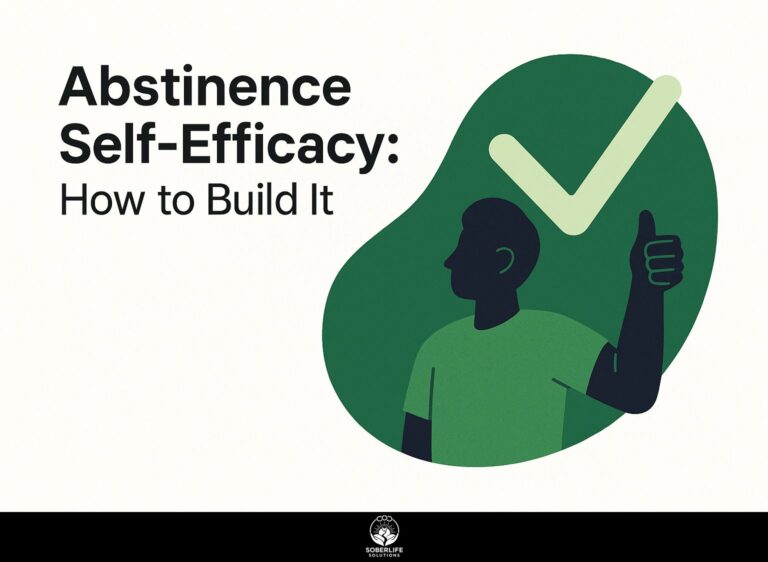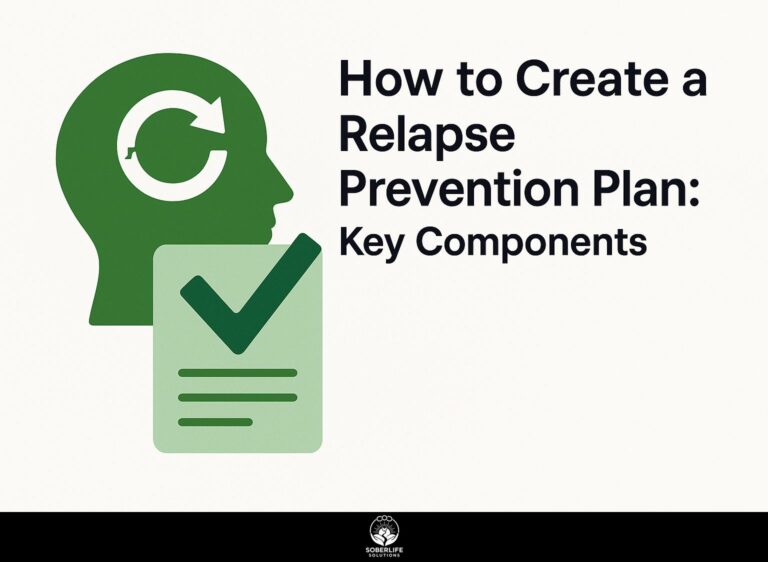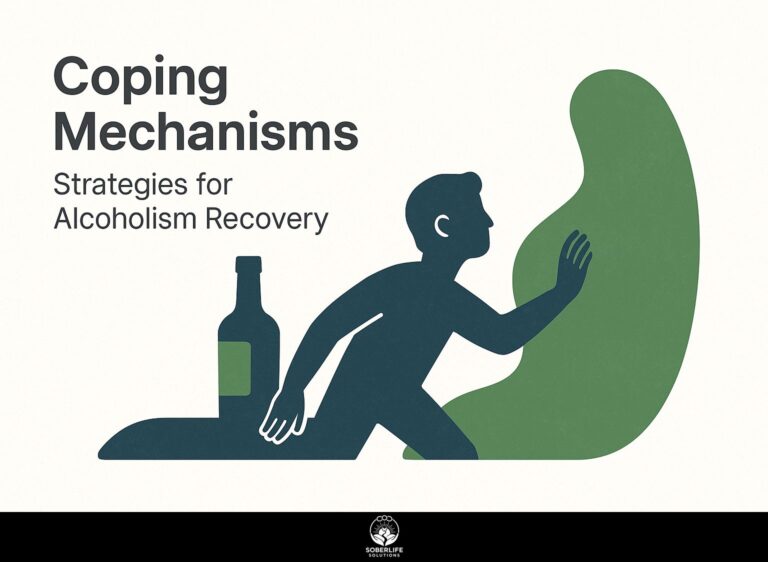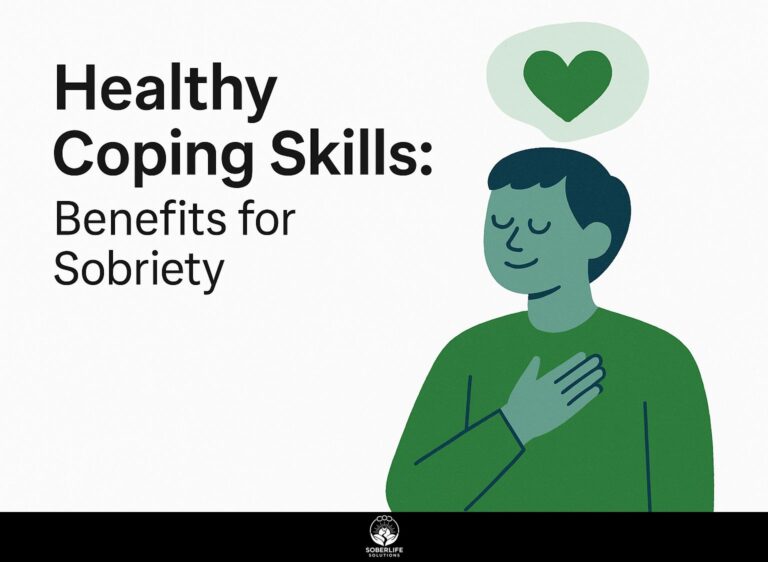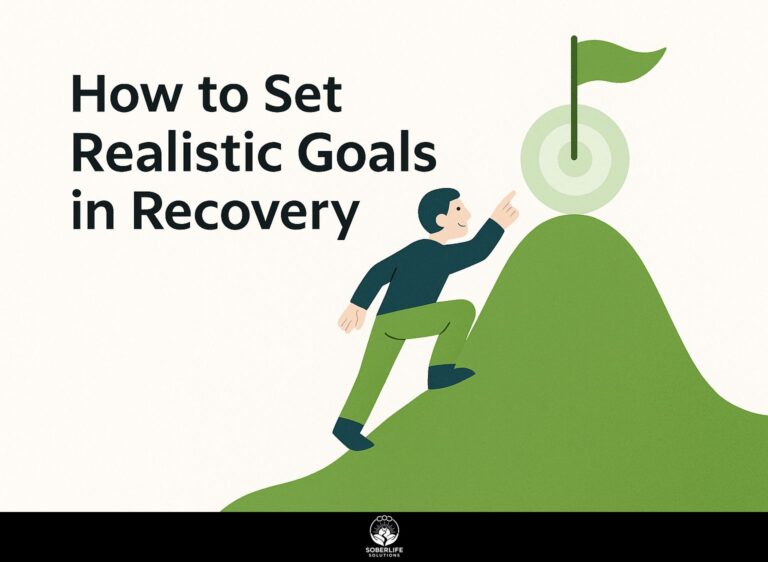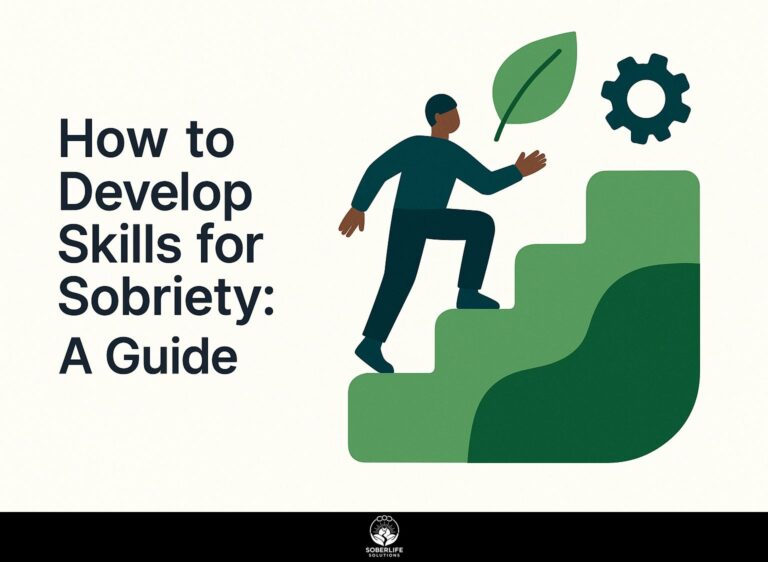How to Build Coping Skills? Effective Strategies for Recovery
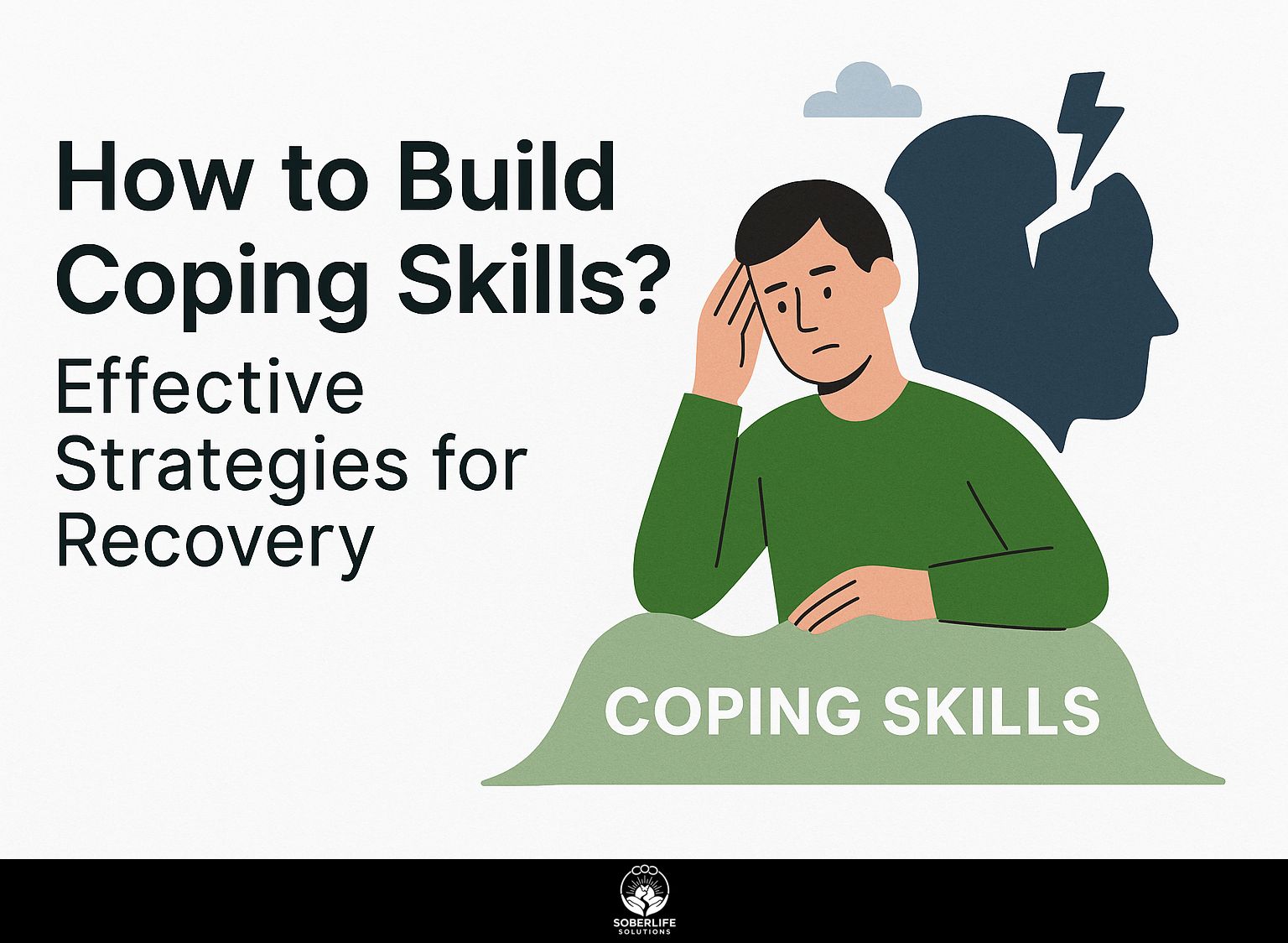
Getting through recovery from addiction needs good skills for dealing with emotional triggers and deciding on healthy actions. Learning these skills is important for promoting self-care and maintaining sobriety over time. In this article, we’ll look at practical ways to build resilience and handle stress, guiding you to a steady path toward recovery. Learn how to find what causes you stress and apply useful methods that help you stay healthy. Let’s begin and help you recover!
Key Takeaways:
Understanding Coping Skills
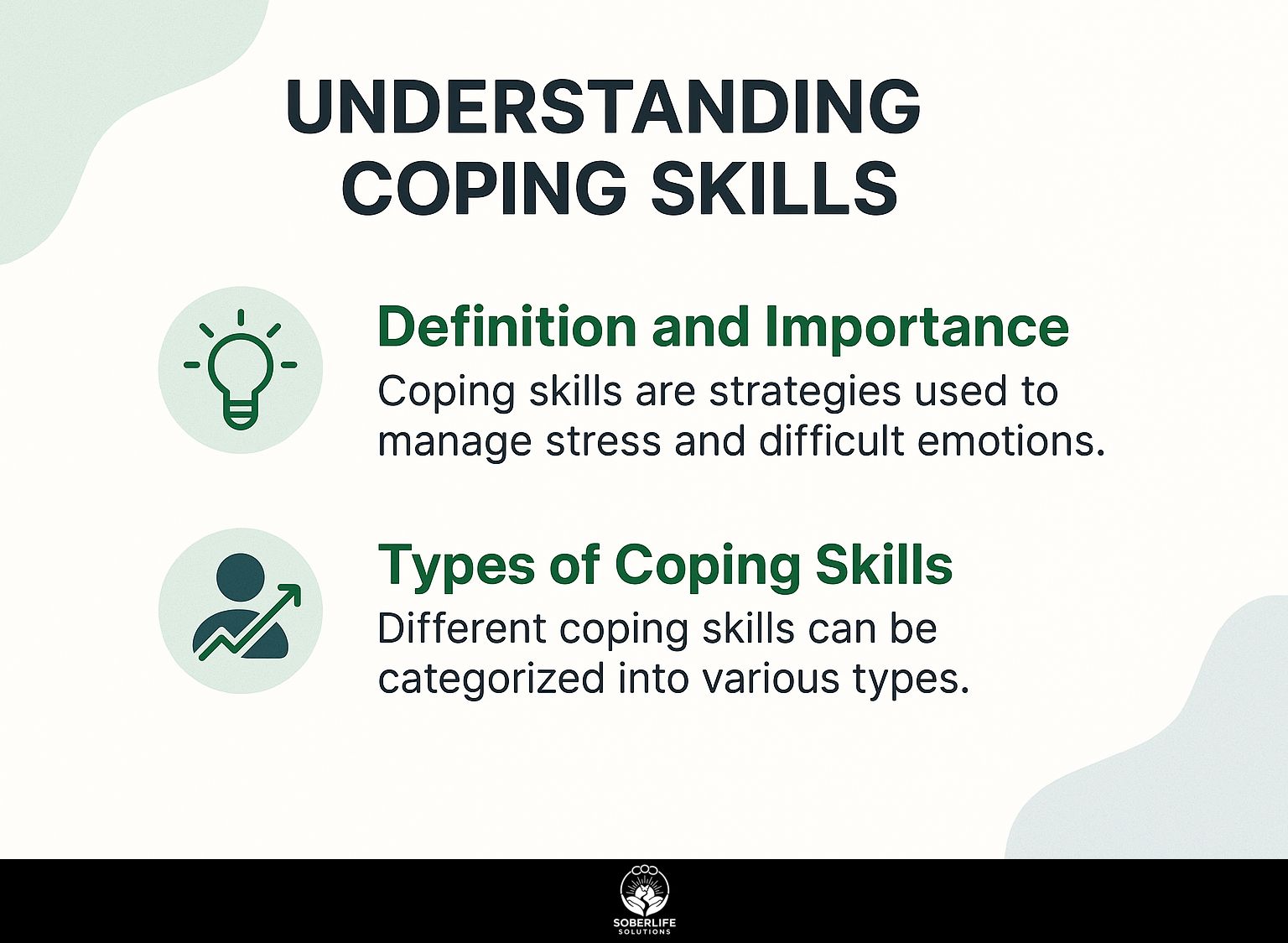
Coping skills are important tools that help people manage stress and emotional difficulties, playing a key role in overcoming addiction and maintaining good mental health. Developing effective coping mechanisms is crucial, especially in addiction recovery, where emotional health can significantly impact progress. Hidden gem: Explore our insights on Emotional Health: Coping Mechanisms for Addiction Recovery to enhance your understanding.
Definition and Importance
Coping skills, explained as ways to handle stress and emotional difficulties, are important for building strength to face mental health issues.
These skills can significantly improve daily life by helping people manage their emotions better.
Practices such as mindfulness meditation and journaling are connected to better control of emotions and improved concentration.
According to studies, individuals equipped with strong coping strategies experience a 50% lower rate of relapse in addiction recovery.
Cognitive-behavioral techniques, such as reframing negative thoughts, can provide tools to challenge and manage stressors, as highlighted in a recent MDPI study.
Adding these skills to daily habits helps improve mental health and increases happiness in life.
Types of Coping Skills
Coping skills fall into two broad categories: problem-focused and emotion-focused strategies, each offering unique approaches to handling life’s stressors.
-
Problem-focused strategies work to solve the issue. For instance, using cognitive restructuring can help individuals change negative thought patterns into positive ones, while time management techniques, like the Pomodoro Technique, help break tasks into manageable intervals. According to ScienceDirect, these strategies are particularly effective in addressing the root causes of stress.
-
In contrast, emotion-focused strategies help change how we react emotionally. Techniques such as mindfulness meditation can help individuals remain present and reduce anxiety, while positive reinforcement encourages healthier behaviors through reward systems.
By bringing together both types, people can create a more complete way to handle stressful situations in their lives.
Identifying Personal Stressors
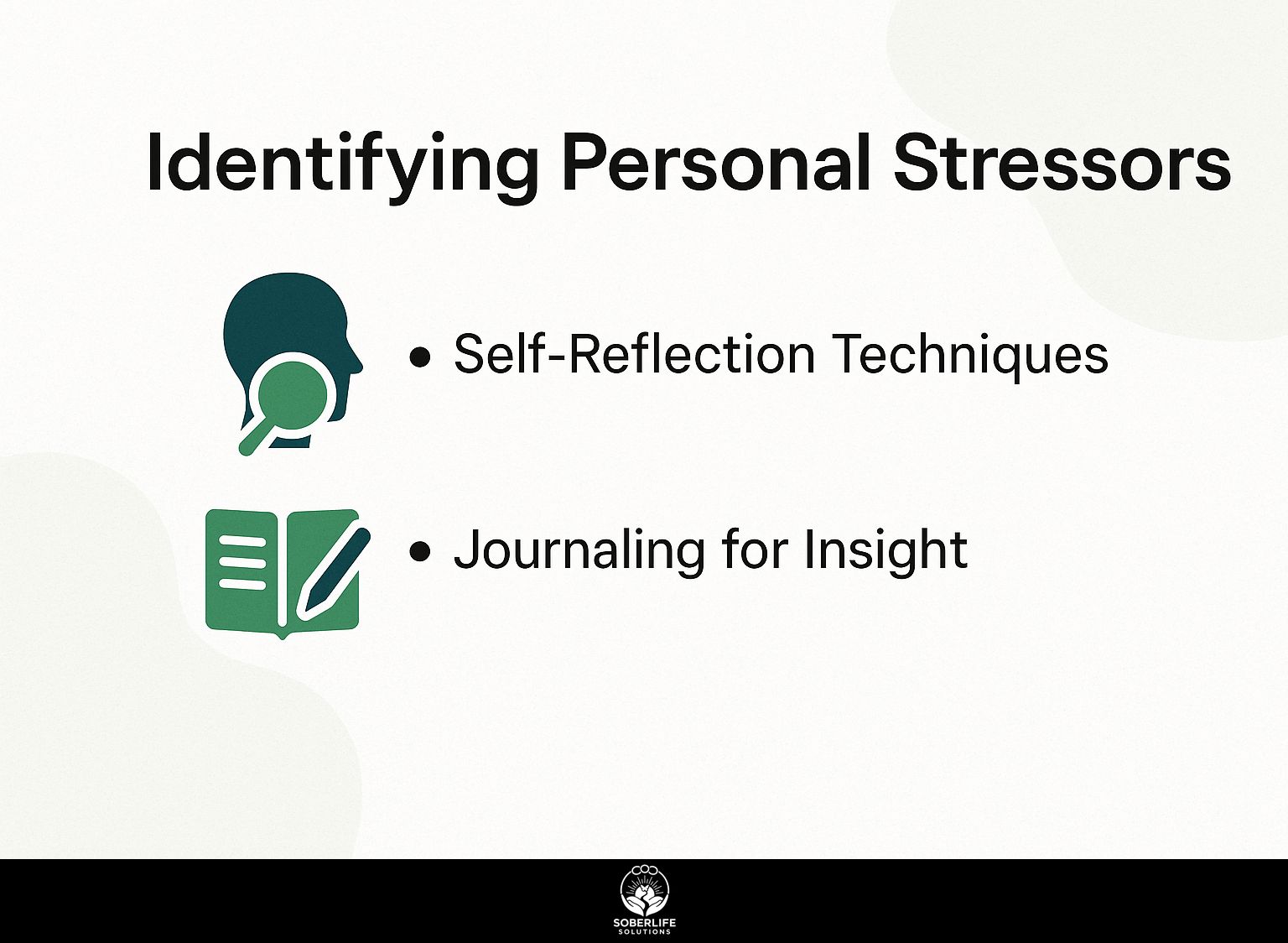
Identifying personal triggers is important for creating successful coping methods and increasing self-awareness for maintaining sobriety over time. Worth exploring: How to Manage Triggers in Alcoholism Recovery, which provides insights into effective strategies for managing these stressors.
Self-Reflection Techniques
Self-reflection techniques, such as mindfulness meditation and guided journaling, help individuals pinpoint emotional triggers and stressors effectively.
Consider integrating daily mindfulness practices with apps like Headspace, which offers short sessions to center your thoughts. Writing in a reflective journal is a powerful way to gain emotional awareness. Maintaining a gratitude journal helps by concentrating on positive experiences.
Schedule regular emotional check-ins-spending 10-15 minutes each day to assess your feelings and reactions can be incredibly beneficial. By using these methods together, you gain a better grasp of your emotions, which leads to better mental health.
Journaling for Insight
Writing in a journal helps you understand your own stress triggers, improve how you handle emotions, and build better ways to cope.
To get the best out of your journaling, try using specific questions to look into your emotions.
For instance, ask yourself, ‘What triggered my stress today?’ to identify the source, and ‘How did I cope with it?’ to evaluate your responses.
Apps like Day One offer a digital platform for capturing these reflections, while a traditional notebook provides the tactile experience some prefer.
Setting aside just 10 minutes daily can lead to significant emotional clarity over time, enhancing both awareness and coping strategies.
Developing Healthy Coping Strategies
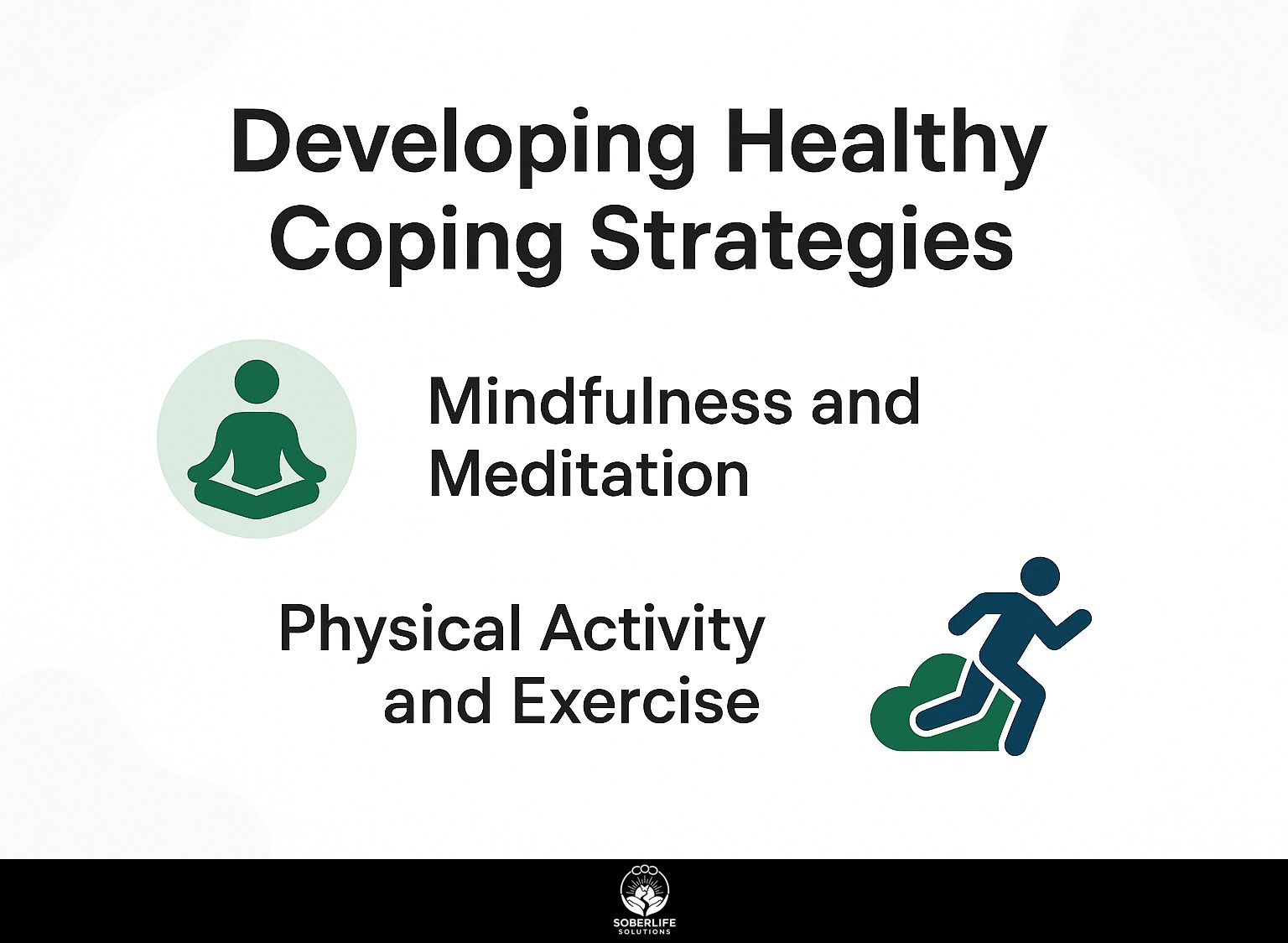
Creating good ways to handle stress is important for dealing with stress well, especially when recovering from addiction and improving mental health. To gain a deeper understanding of effective methods, consider exploring various emotional health coping mechanisms that are essential in addiction recovery.
Mindfulness and Meditation
Mindfulness and meditation practices significantly improve emotional regulation, lowering anxiety levels by up to 30% within weeks of consistent practice.
To add mindfulness to your daily routine, begin by setting aside 10 minutes each morning. According to research findings published by Southampton University, just ten minutes of mindfulness daily can boost wellbeing and fight depression.
Try using apps like Calm or Insight Timer for easy guided meditations designed for beginners. Focus on your breath during these sessions, allowing thoughts to pass without judgment. You might also try short mindfulness exercises throughout the day, such as a mindful walk or eating a meal slowly.
As you keep using these practices, you’ll become more aware, helping you handle stress and anxiety better.
Physical Activity and Exercise
Regular exercise improves physical health and, according to studies, lowers stress by 20%.
To use exercise for stress relief, try adding different activities like yoga, running, and group classes to your routine.
Start with 30 minutes of moderate activity, 3-5 times a week. Yoga helps you relax and focus, while running can lift your spirits by releasing endorphins. Group classes provide a chance to meet others and encourage you to stick with your routine.
To keep an eye on your progress, use apps like MyFitnessPal. It helps you monitor your workouts and meals, ensuring you stick to your plan for lowering stress and maintaining good health.
Building a Support System
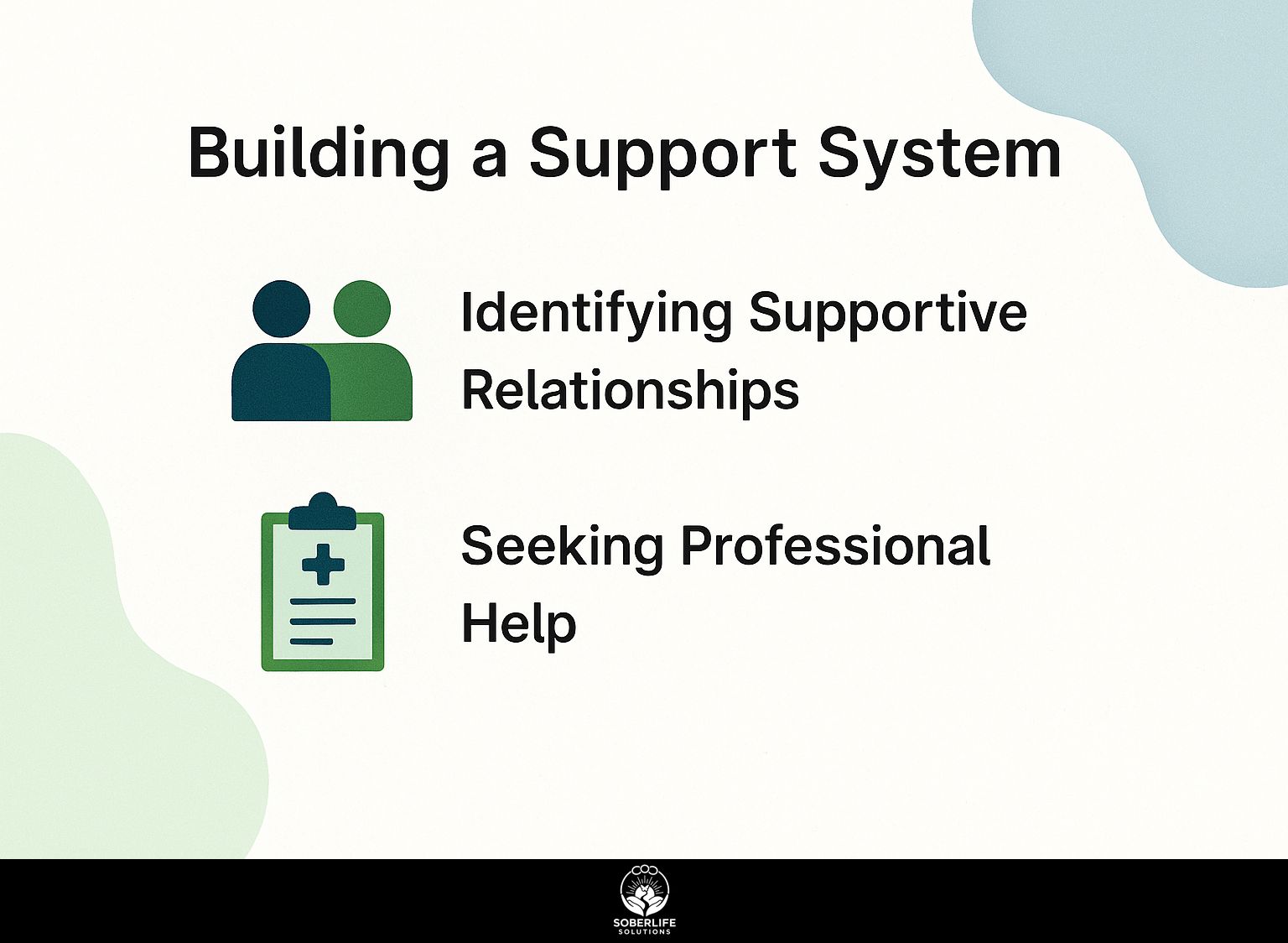
Having a reliable group of people is important for getting through addiction. They provide emotional help and access to resources to handle challenges. If you’re interested, you might find it valuable to learn about building new connections for recovery.
Identifying Supportive Relationships
Finding and developing helpful relationships is important for creating a strong support system that can improve your ability to handle stress.
To evaluate your relationships, consider these criteria:
- Do they encourage healthy choices, such as promoting positive habits and self-care?
- Can you count on them during difficult times, always providing support and empathy when required?
- Do they respect your personal boundaries, allowing you space without judgment?
Groups like SMART Recovery can provide useful advice and support. By surrounding yourself with positive influences, you can significantly improve your mental well-being and resilience.
Seeking Professional Help
Getting professional help provides a clear plan for recovery, allowing access to treatments that deal with mental health and substance use problems.
To find the right support, start by researching local therapists specializing in dual diagnosis treatment. Platforms like Psychology Today enable you to filter options by location and specialty.
Attend therapy sessions regularly, with weekly appointments often recommended for effective progress.
Look into group therapy choices, where people can receive helpful support from others and share their experiences. Following these steps can significantly help you find peace and heal, helping you develop methods to handle stress and establish better habits.
Practicing Resilience
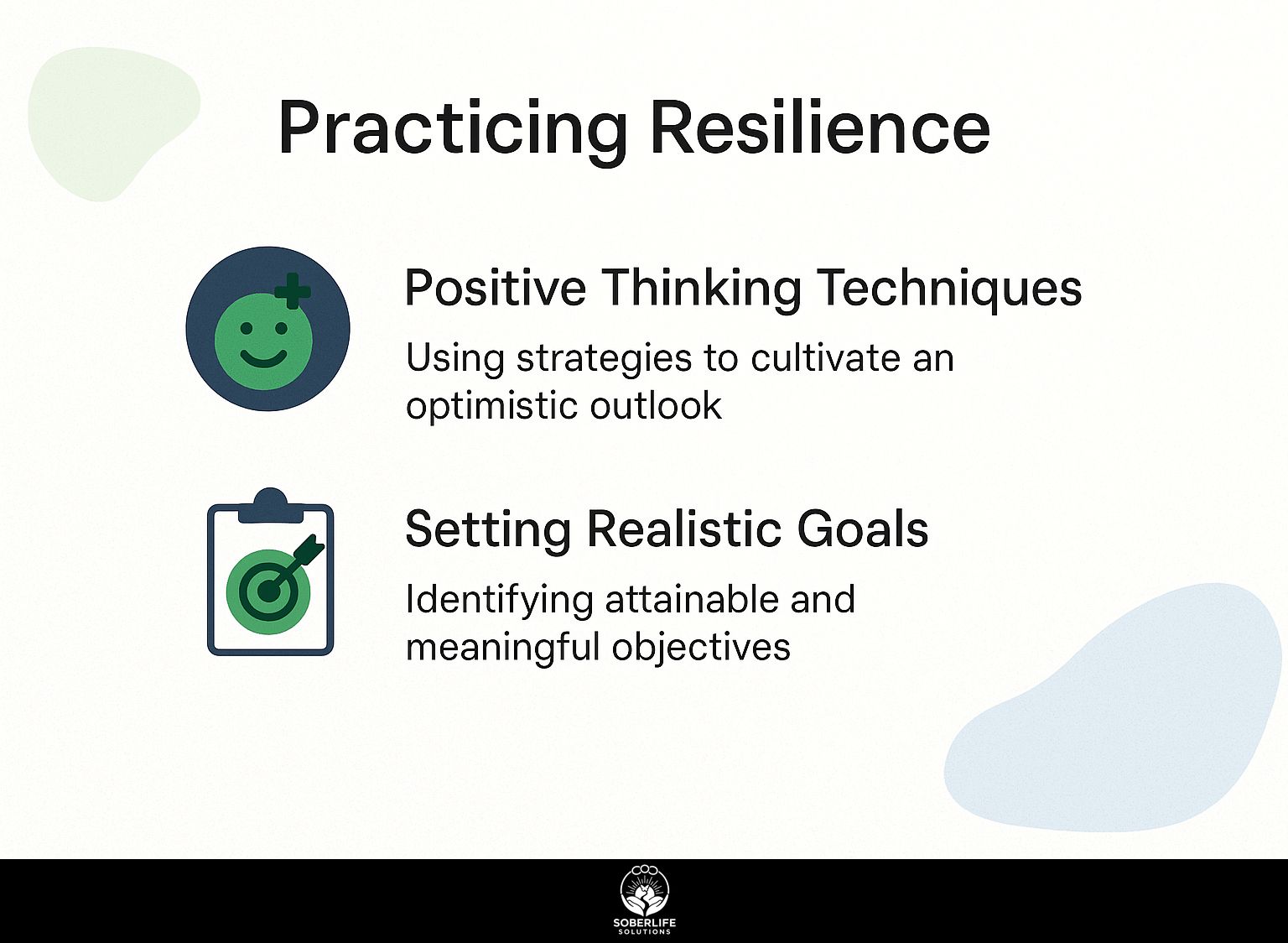
Building resilience means creating ways to improve emotional strength and support lasting recovery from addiction. One effective strategy is engaging in activities that foster new social connections, as discussed in our article on building new connections for recovery.
Positive Thinking Techniques
Thinking positively, like showing gratitude, can increase drive and self-esteem, which help keep emotions steady.
- One effective method is to keep a gratitude journal. Each day, write down three things you’re grateful for, ranging from small joys to significant achievements, such as a supportive friend or a recent success at work.
- Consider incorporating daily affirmations; for example, recite phrases like ‘I am capable’ or ‘I deserve happiness’ to reinforce a positive mindset.
These small actions can greatly change your focus from negative to positive, building strength and improving overall health.
Setting Realistic Goals
Setting realistic goals is important in recovery, offering a clear plan for progress and success.
To set and achieve goals effectively, use the SMART guidelines.
For instance, a specific goal could be ‘exercise for 30 minutes, three times a week,’ which is measurable and achievable.
Make sure it’s important for your recovery, like better physical health, and set a period-stick to it for the next month.
Regularly assess your progress; adjust your objectives as needed to maintain motivation and accountability.
This organized method makes setting goals easier and creates a solid feeling of achievement.
Monitoring Progress
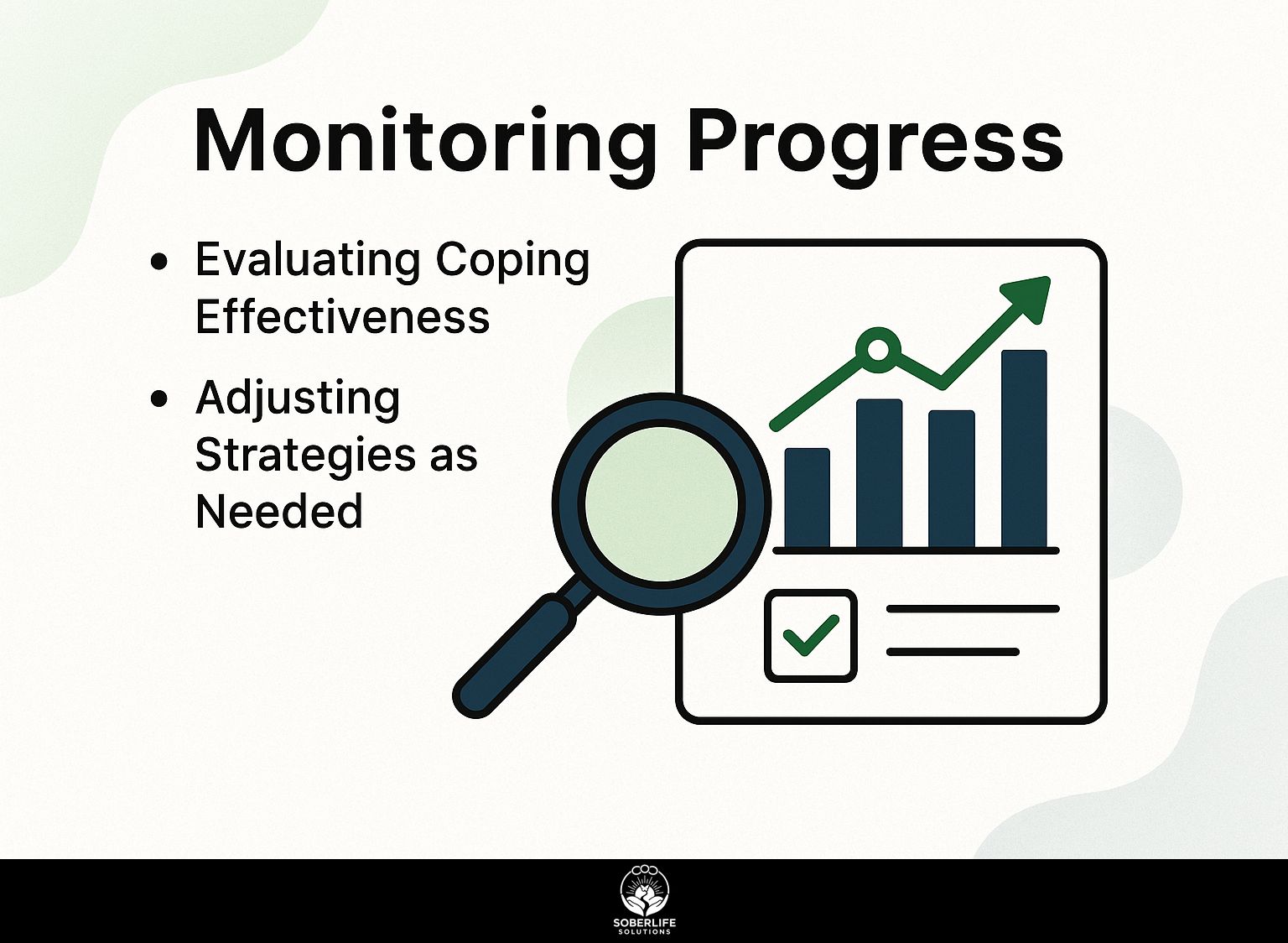
Tracking how well coping skills work is important for overcoming addiction, helping people change their approaches when necessary.
Evaluating Coping Effectiveness
Checking how well coping methods work is important to see which approaches are most effective in different situations.
To do this effectively, set a bi-weekly review schedule where you can assess your coping strategies.
During these reviews, track key metrics such as the frequency of cravings, emotional stability scores, and any changes in behavior.
Use mood tracking apps like Daylio or Moodpath to document your emotional states over time. This will give a better view of how you’re doing, helping you see which methods work best for you and which might need changes.
Adjusting Strategies as Needed
Altering how you face difficulties is important for staying resilient and managing stress and desires during recovery.
Begin by identifying which coping strategies aren’t yielding the desired results. If keeping a journal doesn’t seem helpful, try options such as meditation or working out.
Research tools such as Headspace for guided meditation or apps like MyFitnessPal for tracking your physical activities.
Next, implement these new techniques gradually, keeping a log of your responses to each method. Be ready to change your plans when needed; healing is individual, and often reviewing what works for you is important.
Frequently Asked Questions
What are coping skills and why are they important for recovery?
Coping skills refer to the ways in which an individual deals with and manages difficult emotions, thoughts, and situations. These skills are important for recovery because they help people handle challenges and manage their well-being.
How can I start building coping skills for my recovery?
Learning how to handle stress takes time, but you can begin using various helpful techniques. These include practicing mindfulness, setting limits, getting help from others, and finding healthy ways to handle stress.
What is the role of self-care in developing coping skills?
Taking care of yourself is important for developing coping skills. Looking after your body, mind, and emotions can help you handle difficulties and lower the chance of slipping back into old patterns. Make sure to prioritize self-care activities such as getting enough sleep, eating well, and engaging in activities that bring you joy and relaxation.
Is it important to have a variety of coping skills?
Yes, having multiple coping skills allows you to have a diverse toolkit to use in different situations. Different coping skills work for different people and situations. Having several strategies can help you handle tough feelings and events more successfully.
How can I stay motivated to keep using my coping skills?
Staying motivated can be challenging, but it is important to remember the positive impact that your coping skills have on your recovery. It may be helpful to set realistic goals, track your progress, and remind yourself of the benefits of using coping skills, such as reducing stress and improving overall well-being.
What should I do if I am struggling to develop coping skills on my own?
If you are struggling to develop ways to handle stress, it might help to talk to a therapist or join a support group. These resources offer advice and methods to help you build helpful coping strategies for your recovery process.

